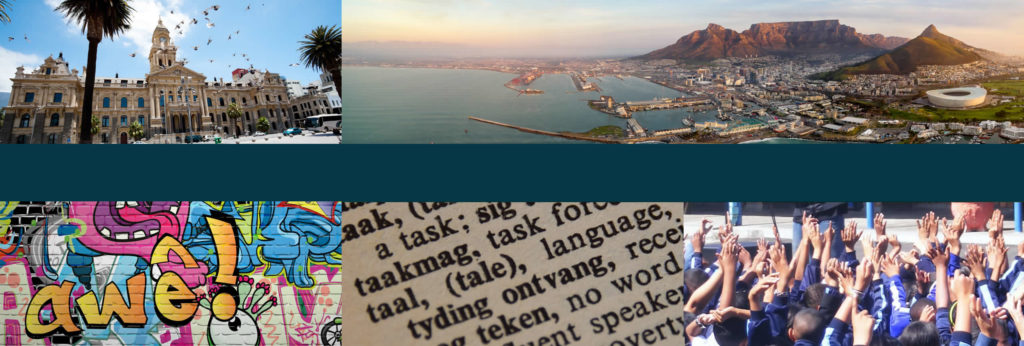
The Centre for Multilingualism and Diversities Research (CMDR) at the University of the Western Cape and Heal the Hood Project (HTH, a community NGO) are pleased to announce the launch of the Trilingual Dictionary of Kaaps (TDK) project. The Trilingual Dictionary of Kaaps (TDK) is a descriptive corpus project that will develop the first dictionary of Kaaps.
This project is funded by the Department of Cultural Affairs and Sport (DCAS, Western Cape), and the Centre for Language, Race, and Ethnicity at the University of California, Los Angeles (UCLA) (USA).
Kaaps was created in Southern Africa during the 1500s. It remains one of the oldest and most marginalized ways of speaking. For decades, activists, academics, artists, authors campaigned for the empowerment of Kaaps speakers and the transformation of schools, universities and the economy. With this dictionary project, we are taking the first real step in that direction.
Today, Kaaps is an important linguistic resource in the Western Cape and beyond. For a long time, academics, writers, activists and linguists have argued that we need to focus on:
- The linguistic description of Kaaps;
- The unification of the writing system;
- The educational advancement of Kaaps for academic literacy in basic and higher education; and
- The media and economic benefits of Kaaps.
To contribute to these foci, this dictionary project aims to transform prevailing negative attitudes and perceptions of Kaaps and its speakers by producing an educational resource that will support social and academic literacy practices in the education, religious, cultural, political and economic spheres of our democratic society. Our specific goals are:
- To shed further light on the historical roots of Kaaps;
- To contribute to current debates about the unification of the writing system of Kaaps;
- To document the use of Kaaps across all relevant modalities, platforms, genres, practices, performances, interactions and linguistic landscapes; and
- To describe the lived linguistic experiences of speakers of Kaaps.
Please visit our website to learn more about our editorial board and advisory members: http://dwkaaps.co.za/. If you would like to receive more information about the project, donate to the project or schedule an interview with one of the core editorial members, please email us: dwkaaps@uwc.ac.za.
Laat een reactie achter